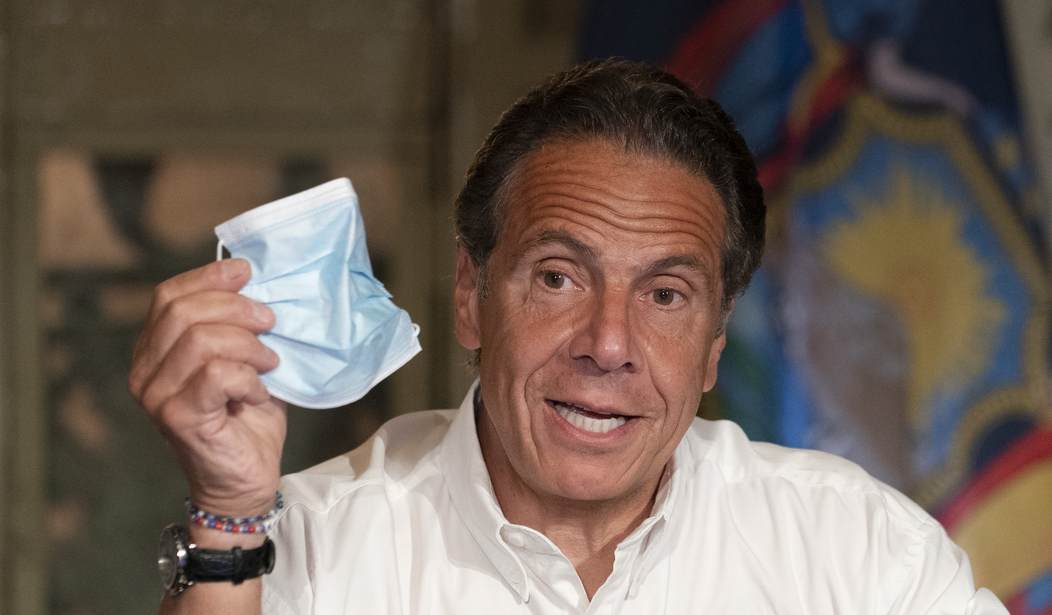With the number of cases of the new coronavirus variant, BA.2.86, on the rise, many Americans are beginning to fear more government overreach, and they aren’t wrong. Since the initial outbreak of the COVID-19 pandemic, lawmakers at all levels of government have overstepped their bounds and grown increasingly power-hungry. Unfortunately, yet another COVID-19 variant has the potential to be another excuse, or reason, for unchecked decisions that could affect Americans deeply.
On the local level, three school districts in the country have already canceled in-person learning, citing absences from teachers and students due to COVID-19 as the reason. Two school districts in Kansas and one school district in Texas kicked off what is likely to be a national trend this fall.
On the federal level, President Biden said last Friday that he plans to ask Congress for funding to develop a new COVID-19 vaccine. Biden needs the federal taxpayer dollars to entice Big Pharma to develop a new set of vaccines or boosters because the rate of Americans getting the jab has decreased significantly since the rollout of the vaccines. According to CDC data, the number of Americans who received subsequent boosters was substantially lower than the number of Americans who got the original vaccines. After all, the companies developing these vaccines are businesses at the end of the day. If they won’t be able to turn a large profit from their vaccines, they can get their money upfront via the federal government, with the American taxpayers footing the bill, again.
As all of these forces gather, it is only a matter of time until Americans are barraged with another round of useless mask mandates, vaccine requirements, looming lockdowns and school closures, and, worst of all – the potential for gubernatorial overreach.
During the outbreak of the pandemic in early 2020 and in the months that followed, the deciding factor for whether Americans could send their children to school, eat at a restaurant, or go in to the office ultimately came down to which state they lived in. We saw overzealous power-hungry governors like former Gov. Andrew Cuomo (D) lockdown New York into oblivion – leading to the closure of thousands of small businesses and keeping kids at home for months on end. On the other hand, we also saw ambitious governors such as Florida Gov. Ron DeSantis (R) and Texas Gov. Greg Abbott (R) bucking the lockdown trend and pushing for a return to normalcy.
Too many Americans witnessed their respective governors wield unprecedented power with seemingly unlimited emergency dilatations.
Fortuitously, these profiles in courage inspired many Americans and many state lawmakers to reevaluate state statutes pertaining to emergency provisions and powers granted to the governor during a so-called state of emergency.
In the months and years following the initial COVID-19 lockdowns, countless state lawmakers introduced legislation strictly specifying what their governors can and cannot do during a state of emergency. Much of the legislation imposes time limits on declarations of emergency and requires bipartisan committees or full legislative votes to renew states of emergency.
All of these pieces of legislation share the same intent: to inject lawmakers, the elected representatives of the people, into the process of determining when a state of emergency exists, how long it can stay in place, and what governors are able to do in response to the emergency.
Many of the aforementioned bills made their way through the chambers of their respective state legislatures, although shockingly, many did not get the sign-off from the governors to become law.
As new variants of the coronavirus arise, and lockdowns and school closures loom over us like corrupt nightmares from the past, Americans ought to call their state representatives and senators and demand they sponsor or act on such legislation. Use the American democratic process to protect your liberties and the American dream. Furthermore, remember the power your governor can wield when you find yourself at a ballot box in the future.
Samantha Fillmore ([email protected]) is a senior state government relations manager with The Heartland Institute.












Join the conversation as a VIP Member